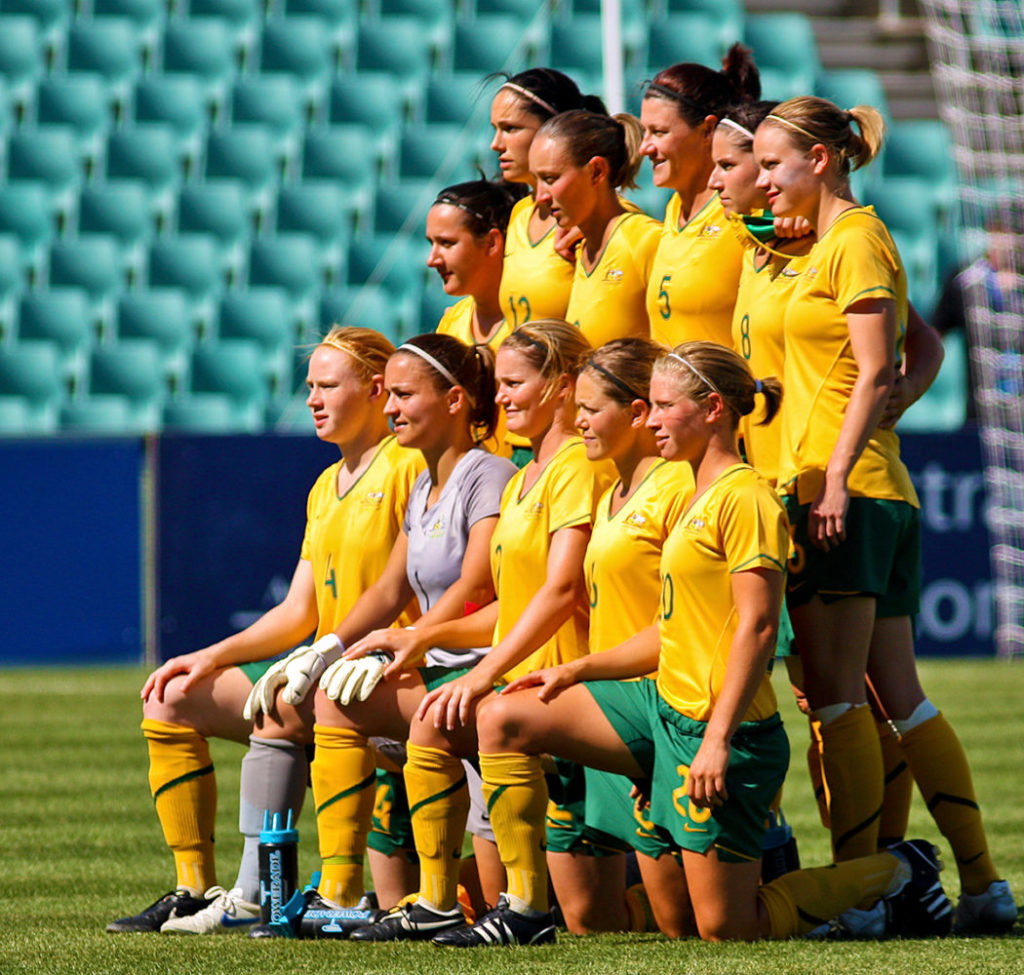
The Women’s World Cup began today in New Zealand, but the Australian women’s team had people talking before the first kick-off.
In a video posted by the Australian professional players union, members of the Matildas criticized gender disparity in women’s soccer and called for two things: equal prize money from FIFA and for all teams to have collective bargaining rights.
“736 footballers have the honor of representing their countries on the biggest stage this tournament,” said midfielder Clare Wheeler.
“Yet many are still denied the basic right to organize and collectively bargain,” added defender Clare Hunt.
The players recalled their own experiences receiving inadequate pay in the past, with some saying they had to work part-time jobs on the side to make ends meet. In 2010, they fought for their first collective bargaining agreement for basic pay, and in 2015 they went on a two-month long strike for equal pay to the Australian men’s team, the Socceroos. Finally, in 2019, the Matildas signed a new collective bargaining agreement that guaranteed a 50/50 split of all commercial revenues between the teams.
The achievement was seen as a leap of progress for women’s soccer, and even prompted the United States women’s team to follow suit last year with its own collective bargaining agreement that earned them equal pay to the national men’s team. However, not all women’s teams have reached parity.
“Our sisters in the A-league women’s are still pushing for football to be a full-time career so that they don’t have to work part-time jobs like we had to,” forward Cortnee Vine said.
Earlier this year, the Canadian women’s team went to Parliament to accuse Canada Soccer of not providing players with the same resources as the men’s team. According to players, they would sometimes have to make choices about which medical treatments to receive when staff physiotherapists were stretched. And just last week, the Jamaican women’s team called out the Jamaican Football Federation for not providing adequate support to players. When their demands were ignored, one player’s mother started a GoFundMe page to help cover the team’s expenses heading into the World Cup.
In addition to countries’ internal conflicts between their teams and federations, there is one hurdle shared by all teams competing in the World Cup: “FIFA will still only offer women one quarter as much prize money as men for the same achievement,” said Matildas midfielder Tameka Yallop.
The total prize pot for this year’s Women’s World Cup is $110 million – while it’s up by 300% from the 2019 tournament, the amount is still significantly lower than the $440 million awarded to men at last year’s World Cup in Qatar. Plus, it’s worth noting that although the first Women’s World Cup was held in 1991, FIFA did not begin awarding prize money to women until 2007.
FIFA president Gianni Infantino ignored the Matildas’ call for equal prize money, saying in a statement, “You will hear from me only positive things” until the final game on August 20. “If somebody’s still not happy about something, well I’m sorry. I’m happy with everything and I love everyone,” he said.
Still, the Matildas have not let this tension get in the way of their performance as co-hosts of this year’s World Cup, and beat the Republic of Ireland in its first group stage match 1-0.
The players said they are not giving up on fighting for equality, citing their past achievements as precedent. “We’ve shown the world that women’s football is a powerful force for good by supporting the causes close to our hearts,” said midfielder Alex Chidiac.



